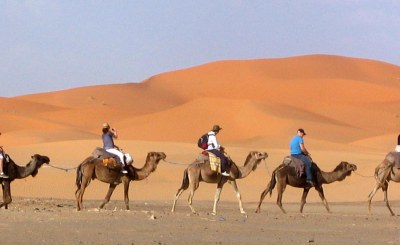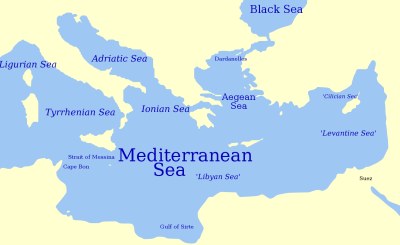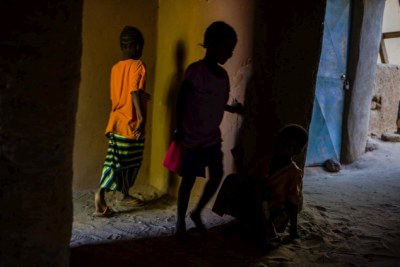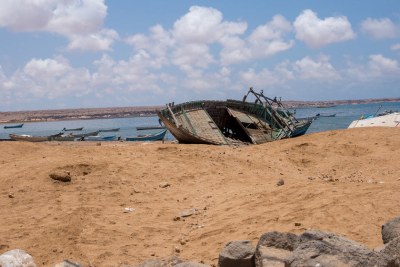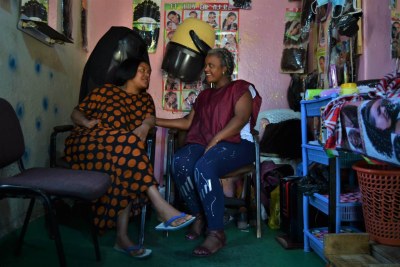-
Africa: Tales of Women at Sea
MSF, 15 March 2023
Testimonies of survivors fleeing across the central Mediterranean Read more »
-
Africa: Women Face Additional Burden While Crossing the Sea
MSF, 7 March 2023
Anyone crossing the sea to escape a dangerous situation, or to find a better life, is in a vulnerable position. But women face the additional burdens of gender discrimination and,… Read more »
-
Tunisia: Africans Rescued in Mediterranean
VOA, 4 February 2023
Italy's coast guard Friday found eight bodies, including the body of a pregnant woman, on a migrant vessel that was attempting to make the journey across the Mediterranean from… Read more »
-
Libya: Gambian Migrant Dies, Eight Missing in Libya Shipwreck
Foroyaa, 17 January 2023
Just two days into the New Year, a shipwreck off the coast of Libya in the Mediterranean Sea claimed the life of at least a Gambian. Eight are reported missing. Read more »
-
North Africa: Rising Demand for ferries from Europe to Northern Africa
InfoWire, 4 January 2023
Since the Coronavirus is making a lesser impact on society, more bookings are being made for the ferries heading south to Northern Africa from European countries: Spain, France,… Read more »
-
Somalia: Somali Survivor Tells Tale of Greek Migrant Shipwreck
VOA, 13 October 2022
A failed engine and high waves were to blame for the fatal shipwreck that killed at least 18 Europe-bound migrants off the coast of Greece last week, one survivor tells VOA. Read more »
How African Women Cross Mediterranean in Hope of Better Life
Doctors Without Borders (MSF) has been running search and rescue activities in the central Mediterranean since 2015, working on eight different search and rescue vessels, alone or in partnership with other NGOs.
Since 2015, MSF teams have provided lifesaving assistance to more than 85,000 people in distress at sea. MSF relaunched search and rescue activities in the central Mediterranean in May 2021, chartering its own ship, the Geo Barents, to rescue people in distress, to provide emergency medical care to rescued people, and to amplify the voices of survivors of the world's deadliest sea crossing.
Anyone crossing the sea to escape a dangerous situation or to find a better life is in a vulnerable position, but women face the additional burdens of gender discrimination and, all too often, gender-based violence, along their routes. Women represent only a small proportion - around 5% - of those who make the dangerous journey from Libya to Italy.
On board the Geo Barents, female survivors regularly disclose practices such as forced marriage or genital mutilation (affecting either themselves or their daughters) as being among the reasons they were forced to leave their homes.
Women also face specific risks during their journeys - MSF medical teams report that women are proportionally more likely to suffer fuel burns during the Mediterranean crossing, as they tend to be placed in the middle of the boat where it is thought to be safest. Many women rescued also report having experienced various forms of violence, including psychological and sexual violence and forced prostitution.
Beyond the difficulties women face on migration routes and in Libya, MSF teams on board the Geo Barents often witness the strong bonds that develop between survivors on the women's deck. The women come together to support one another with daily tasks and childcare.
InFocus
-
The International Committee of the Red Cross (ICRC) has said that over 14,000 out of 25,000 people who have been reported missing in Nigeria, are children. There are ... Read more »
-
Misrah, an undocumented migrant worker, and her family, left their home in Ethiopia hoping for a better life. Instead, her three children are now dead. They drowned during a ... Read more »
-
Every year, it is estimated that tens of thousands of Ethiopians travel illegally to the oil-rich Gulf states in search of better paid work. Since April 2020, more than 15,000 ... Read more »
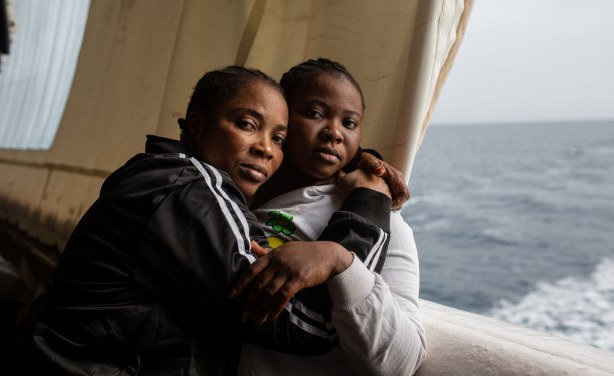
MSF medical teams report that women are proportionally more likely to suffer fuel burns during the Mediterranean crossing, as they tend to be placed in the middle of the boat where it is thought to be safest.
